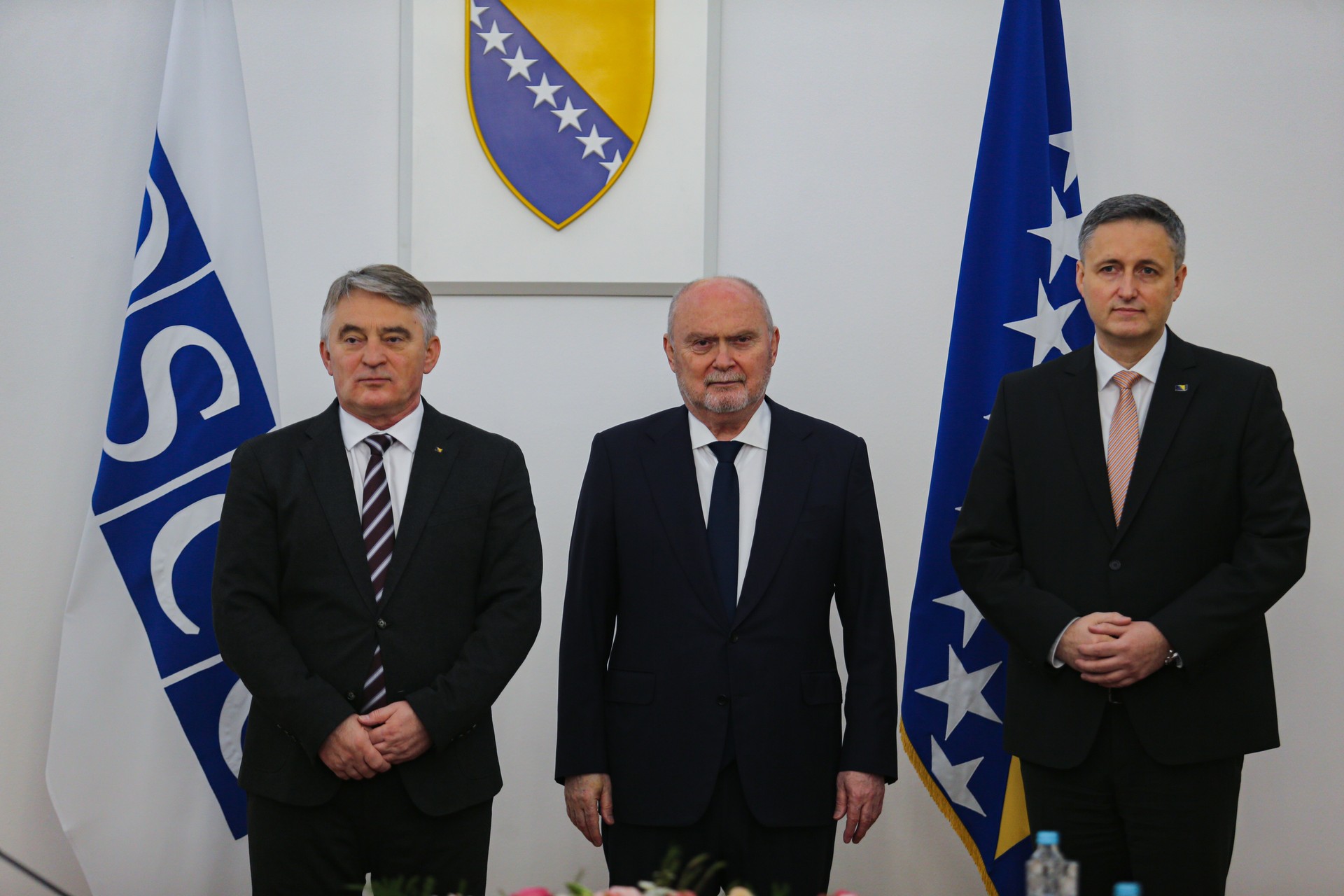
The Organization for Security and Co-operation in Europe (OSCE) has reaffirmed its commitment to supporting the resolution of the ongoing political crisis in Bosnia and Herzegovina, emphasizing the importance of strengthening democratic institutions and ensuring security.
During an official visit to Sarajevo, OSCE Secretary General Feridun Sinirlioglu met with Bosnia and Herzegovina’s Foreign Minister Elmedin Konakovic to address recent developments, particularly decisions by Republika Srpska (RS) President Milorad Dodik and the RS National Assembly (NSRS) that contradict the country’s constitution.
"The OSCE has been working with Bosnia and Herzegovina for more than 30 years to secure lasting peace," Sinirlioglu stated at a joint press conference.
"The current political situation is creating serious internal consequences and poses long-term risks to regional stability. The OSCE stands firmly for the sovereignty, territorial integrity, and political independence of Bosnia and Herzegovina," he added.
Sinirlioglu called on political leaders to respect the constitutional order and avoid divisive rhetoric.
He emphasized that the OSCE remains ready to continue its efforts to support democratic governance and national security.
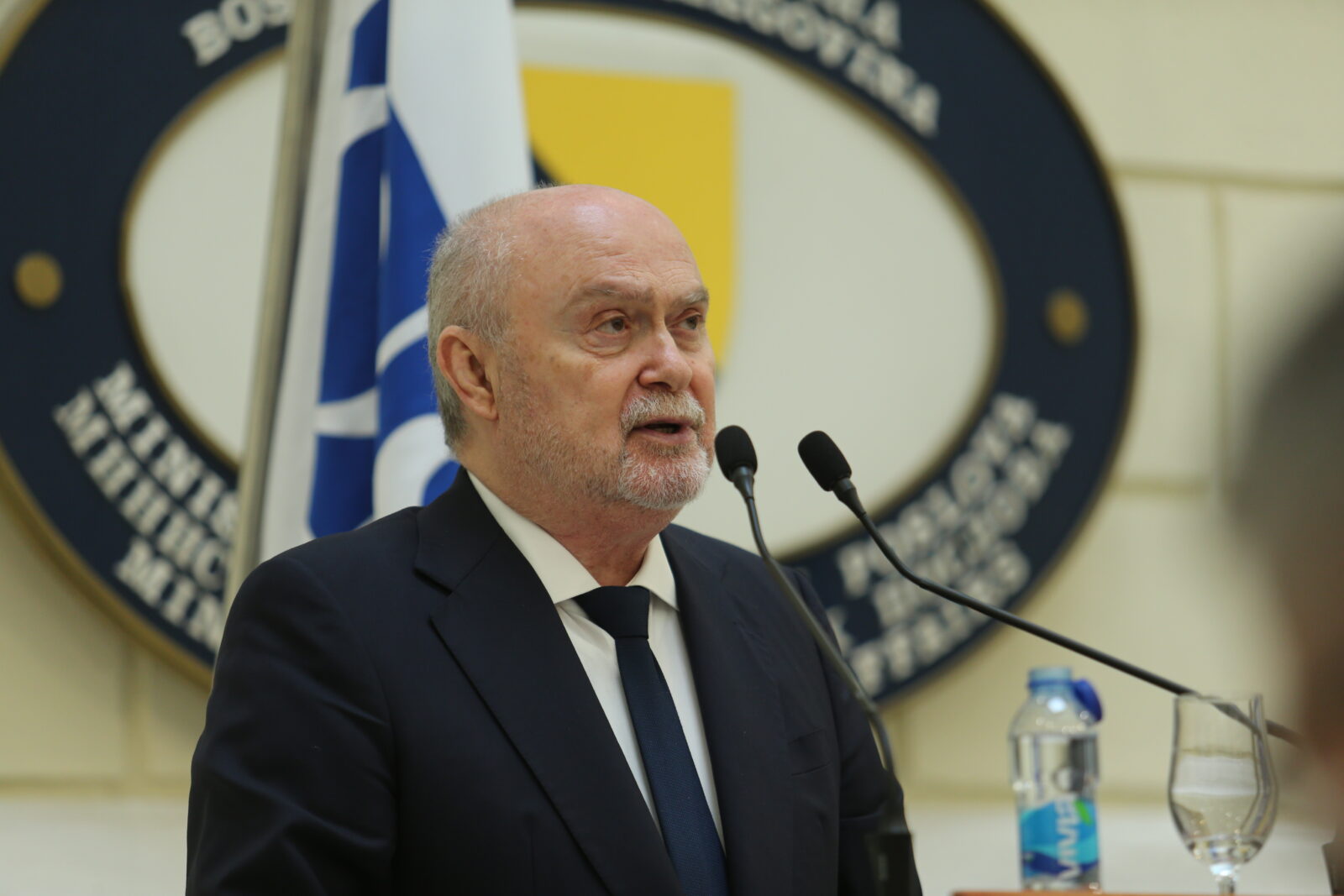
Foreign Minister Konakovic highlighted that the instability in Bosnia and Herzegovina impacts not only the country but also the broader Balkans and Europe.
"On the path toward European integration, we face a single obstacle—Milorad Dodik and his political organization," Konakovic said. "His actions threaten the interests of the state and its citizens under the guise of addressing his own political agenda."
Konakovic further stated that Dodik’s threats of sanctions against Serbs who oppose his separatist agenda have exacerbated the political crisis.
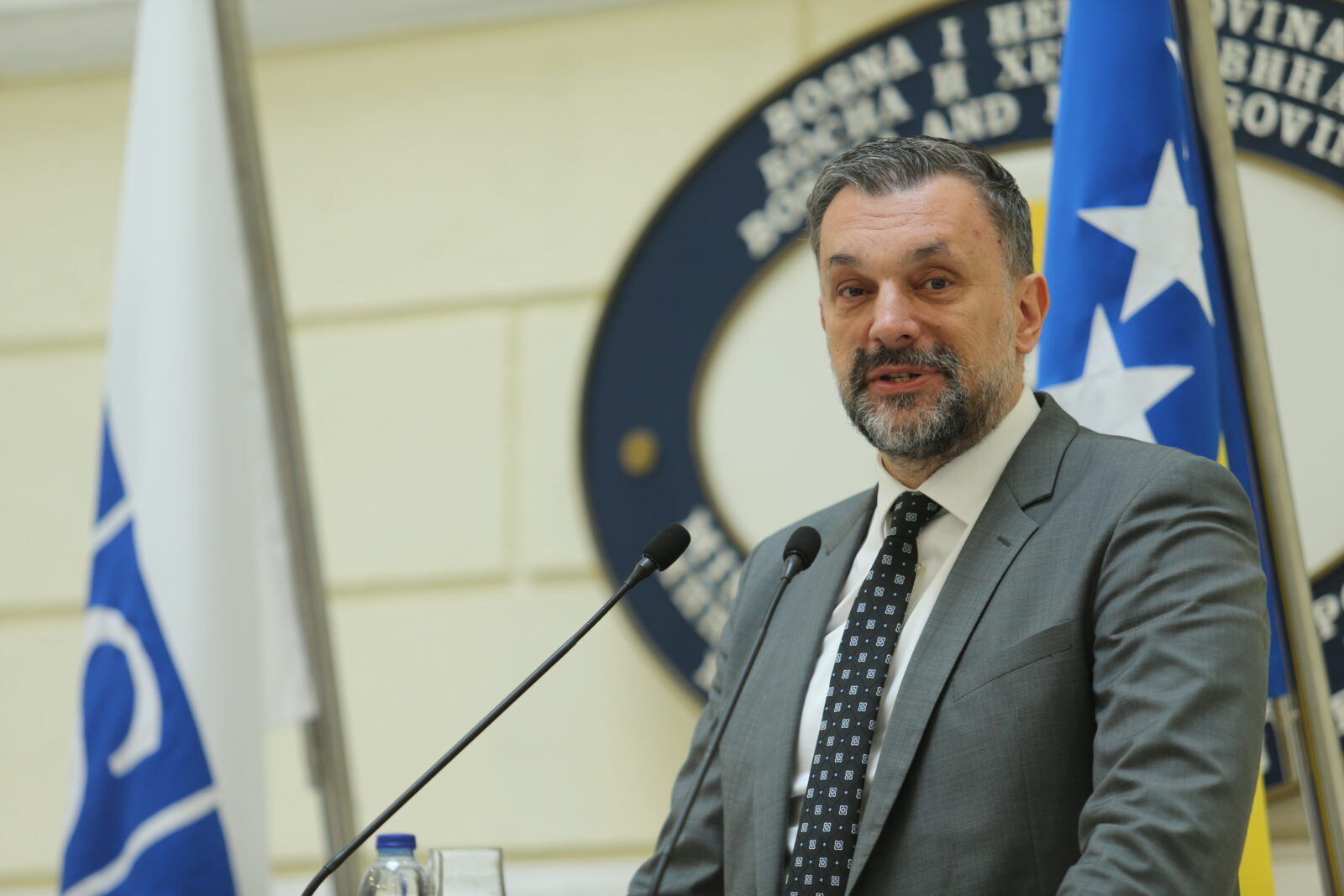
Following discussions at the Foreign Ministry, Sinirlioglu also met with members of Bosnia and Herzegovina’s tripartite Presidency—Denis Becirovic (Bosniak member) and Zeljko Komsic (Croat member).
Meanwhile, Dodik continues to promote separatist proposals, including introducing a draft constitution in the RS parliament containing provisions for a self-determination right and establishing a separate RS army.
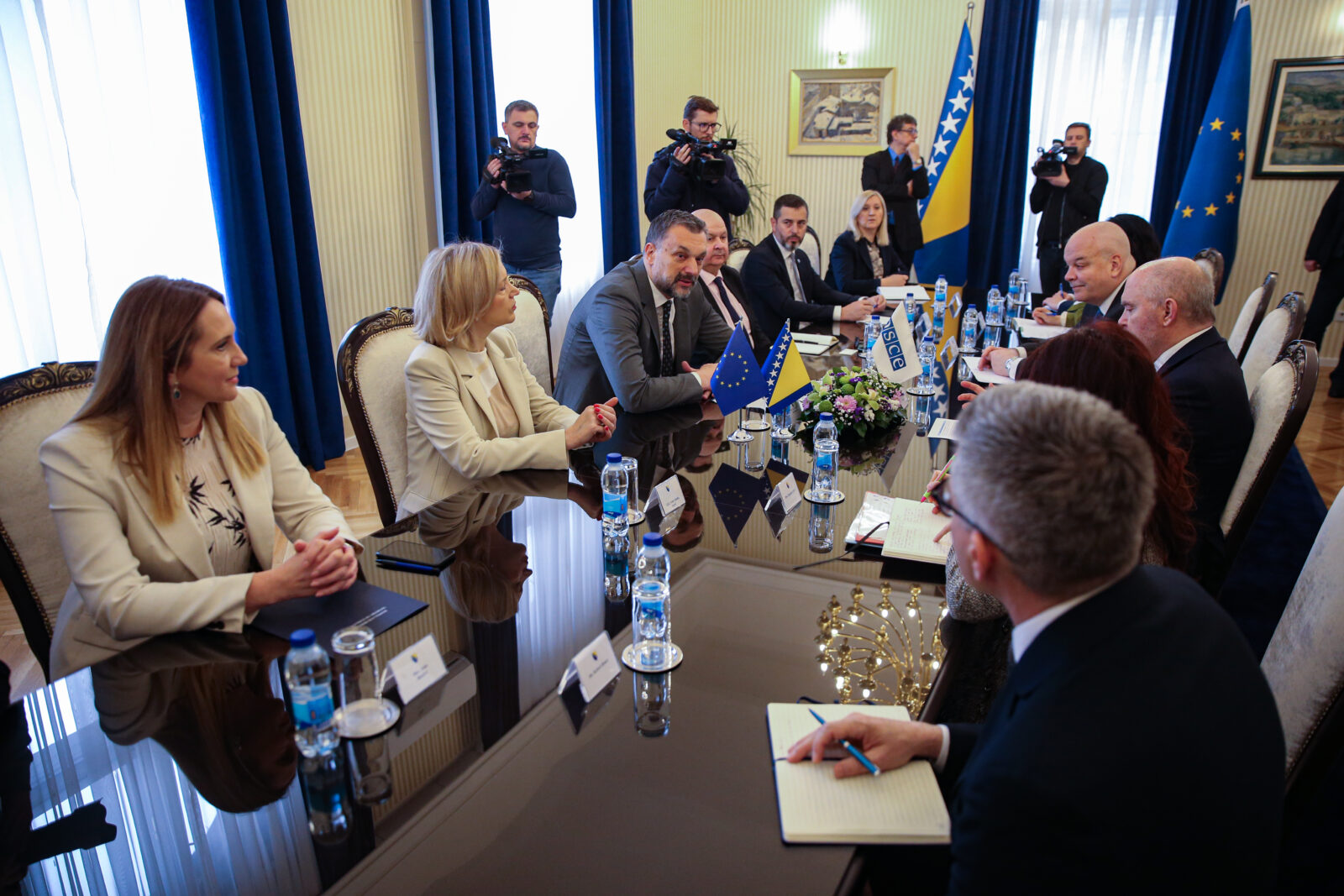
Bosnian courts previously sentenced Dodik to one year in prison and banned him from political activity for six years, citing his refusal to recognize decisions by the Office of the High Representative (OHR).
In retaliation, the NSRS voted to ban the activities of several state institutions—including the High Judicial and Prosecutorial Council, the Prosecutor’s Office, the Court of Bosnia and Herzegovina, and the State Investigation and Protection Agency (SIPA)—within RS territory.
The Constitutional Court later annulled these measures, labeling them unconstitutional. Nonetheless, Dodik persisted in advancing separatist proposals in violation of the constitutional order.
The Prosecutor’s Office subsequently issued arrest warrants for Dodik, NSRS President Nenad Stevandic, and RS Prime Minister Radovan Viskovic on charges of threatening the constitutional system. Domestic arrest orders remain active as the individuals continue to defy summons.
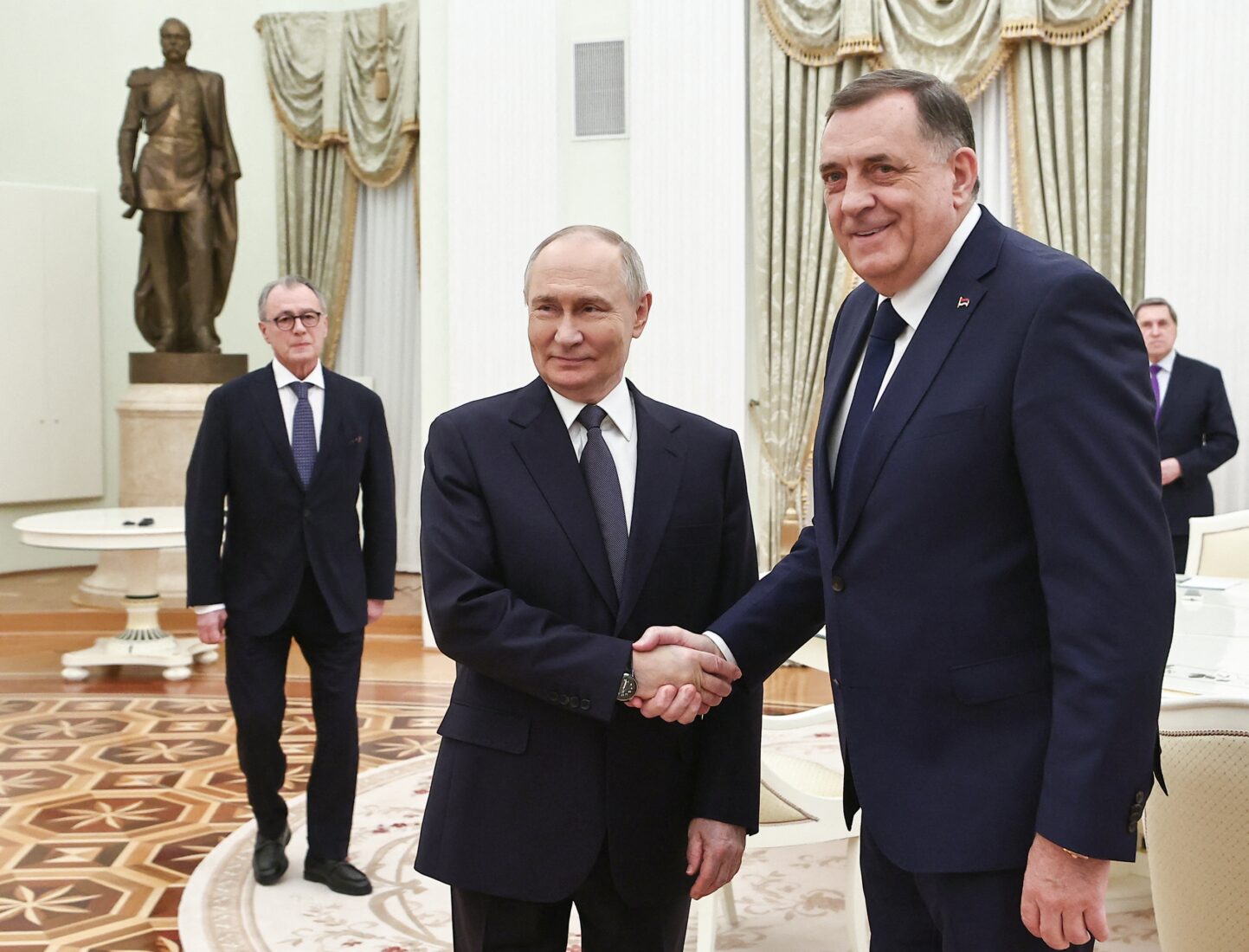
Despite the active warrant, Dodik traveled to Moscow and met with Russian President Vladimir Putin. Footage released by the Kremlin showed Putin greeting Dodik with a smile and stating, "Dear Mr. President, I am very happy to see you in Moscow."
Dodik, a close Russian ally, claimed this was his 26th meeting with Putin and reiterated Russia's role as a "guarantor" of peace in Bosnia and Herzegovina. He also criticized international institutions, particularly the High Representative, as illegitimate.
Following the meeting, Dodik declared his intention to return to Bosnia and attend a political meeting in Banja Luka.
Since the end of the 1990s conflict, Bosnia and Herzegovina has been divided into two semi-autonomous entities: Republika Srpska and the Federation of Bosnia and Herzegovina, shared by Bosniaks and Croats. Dodik, aged 66, has repeatedly threatened secession of the Serb-majority entity from Bosnia.